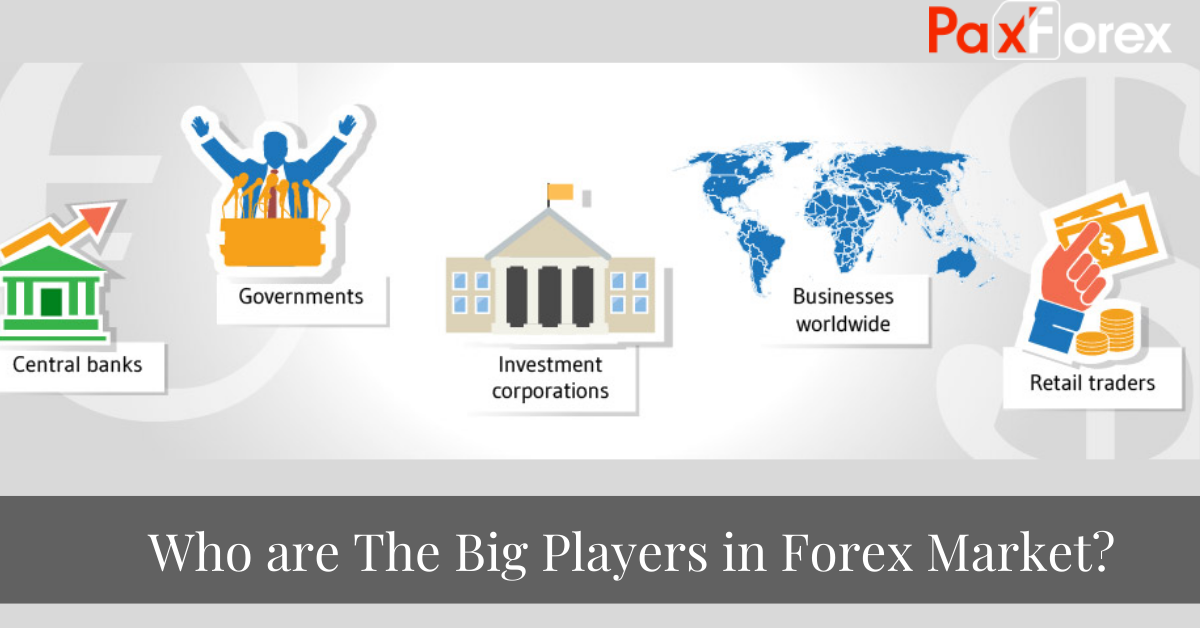
The forex market is composed of three primary segments: the Interbank market, the retail market, and the exchange-traded futures market. Each of these segments, in turn, has a number of market participant types that primarily use that segment to execute currency transactions. The currency market includes transactions in spot forex currency pairs, forward contracts, currency futures, OTC currency options, and exchange-traded options on currency futures.
Without a doubt, it could be strongly argued that the governments and central banks of the world's countries are the big players in the forex market. Normally, the central bank is an extension of that country's government, and will usually formulate and regulate policy in conjunction with the government. Despite the depth of influence that governments and central banks exhibit, regular banks and other types of financial institutions are still a key factor in the forex market in that they are available for those individuals who need to swap currencies in a small-scale type of transaction.
In a globalized world, large corporations operate in many nations and collectively turn over tens of billions of dollars every year. As a result, they constantly need to use the forex markets to purchase and sell different currencies for their business needs. If many corporations decide to move their assets for a common reason, currency rates are likely to be influenced. Banks are also known to execute carry trade in addition to other participants such as hedge fund managers and individual investors. This process involves borrowing low yielding currencies and then selling these for the purchase of higher yielding currencies.
The largest and most controversial speculators on the forex market are hedge funds, which are essentially unregulated funds that use unconventional and often very risky investment strategies to make very large returns. Think of them as mutual funds without the same level of regulation. Given that they can take such large positions, they can have a major effect on a country's currency and economy. Some critics blamed hedge funds for the Asian currency crisis of the late 1990s, while others have pointed to the ineptness of Asian central bankers. Either way, speculators can have a big impact on the forex market.
The forex market, combined with some knowledge and experience, can be very profitable for the individual retail trader. Many retail traders don’t even have a finance background and are self-taught in forex. Many people with a technical background, like engineers, find forex exciting as they can establish their own strict rules and analyze the market from a technical perspective. To start trading forex, you don’t even need to make large initial deposits. The availability of trading on margin makes it possible to start trading with as little as $100, but opening much larger positions.







